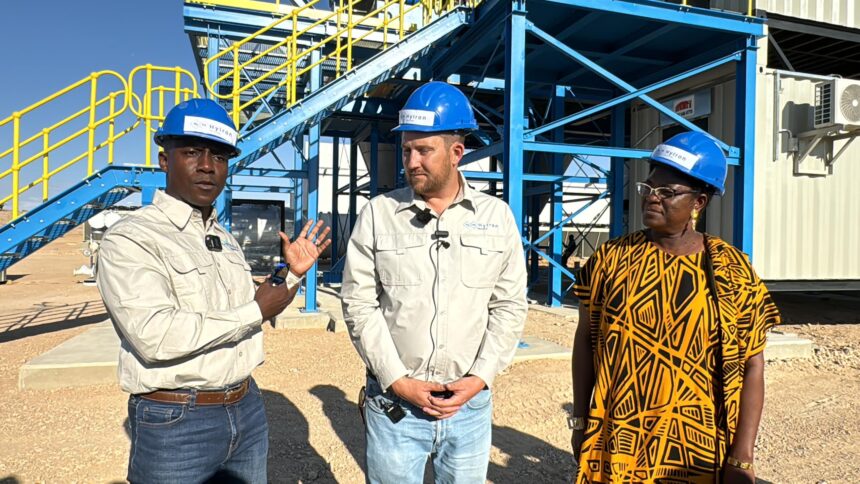Isabel Bento
ARANDIS – HyIron-Oshivela Green Iron project signed its first-ever off-take agreement with German-based automotive technology company Benteler.
HyIronic-Oshivela is the first industrial production project of iron at net zero emissions in Namibia.
Co-founder of HyIron-Oshivela, Johannes Michels, made the announcement during a site visit to the plant in Arandis on Tuesday.
“This is the first time a green product from Namibia has been sold for such a long-term period, setting the stage for future phases of development,” he added.
The agreement entails the supply of up to 200 000 tonnes of Direct Reduced Iron (DRI) annually, produced using green hydrogen technology.
“About a year ago, we embarked on a journey to build something completely new. Despite the uncertainties, we felt safe in the hands of people who value Namibia’s youth as our greatest treasure,” he said.
The project also unveiled its 12-megawatt electrolyser, the largest for Southern Africa, which will produce 15 000 tonnes of DRI annually in its initial phase.
The project has an annual production potential of 1 million tonnes iron per year and is projected to avoid 1.8 million tonnes carbon dioxide equivalent (CO₂e/) year.
If applied to the needed additional production capacities of 300 million tonnes until 2030, 540 million tonnes CO₂e could be avoided yearly by 2030, providing an enormous contribution in the fight against climate change.
In her remarks, minister in the Presidency Christine //Hoebes emphasised the broader implications of this initiative, noting that it aligns with Vision 2030, transforming Namibia into an industrialised nation while setting a global example in combating climate change.
“By reducing emissions equivalent to 88 % of Namibia’s current carbon footprint, we are proving that a small nation can lead in green innovation,” she expressed.
Green Hydrogen Commissioner James Mnyupe highlighted the innovative financing strategies underpinning the project’s expansion.
“Partnerships with the Dutch government and the European Union Commission have mobilised Euros 65 million (N$1.4 billion) in funding, enabling the development of phases two and three,” he said.
He described the off-take agreement as a cornerstone for scaling production and meeting global demand.
“This green iron initiative not only bolsters Namibia’s economy but also positions the nation as a key player in the global green energy transition,” Mnyupe expressed.
-Nampa



